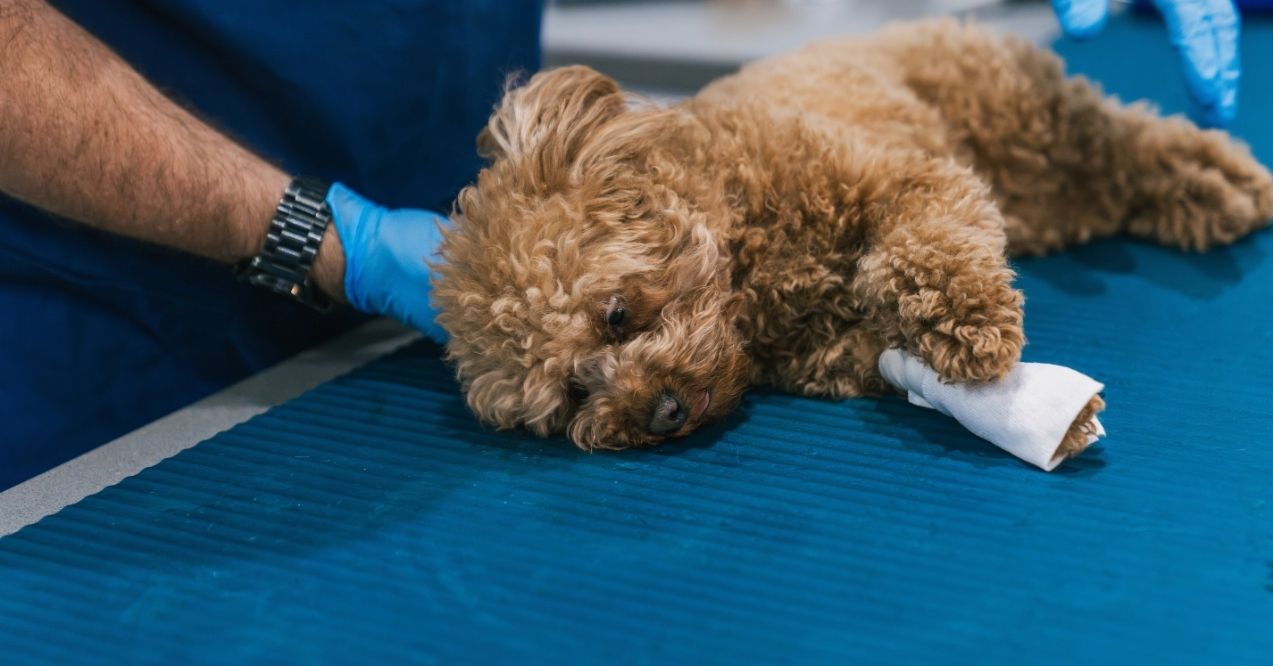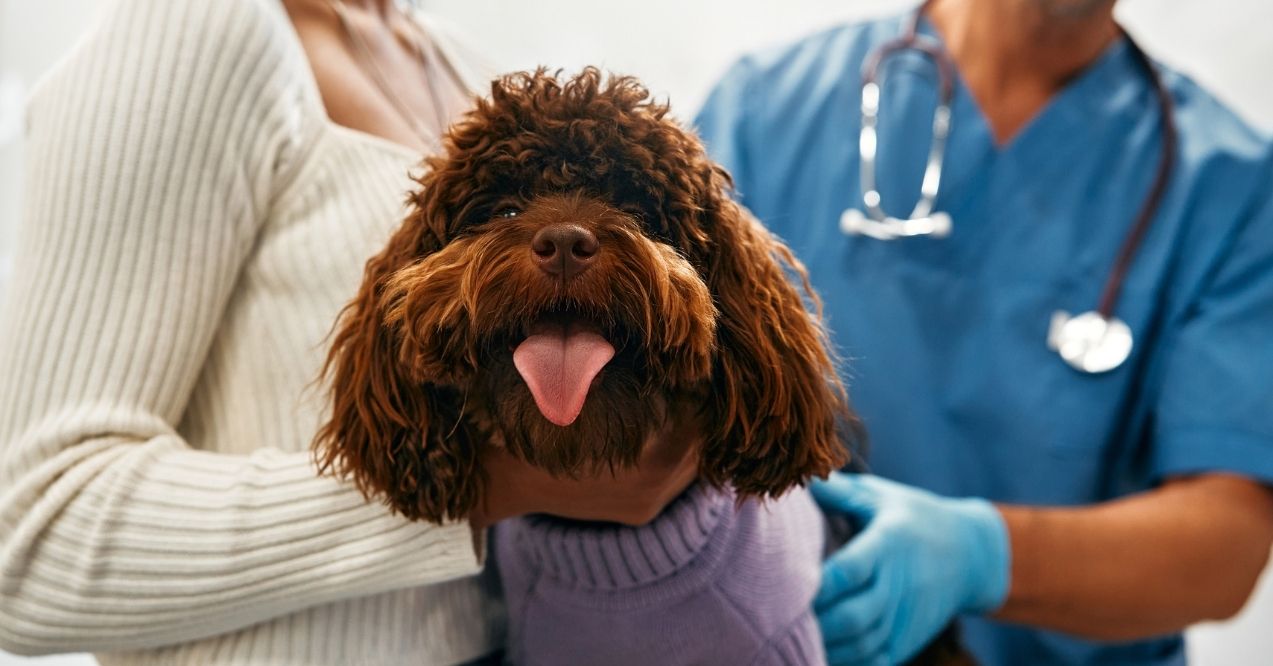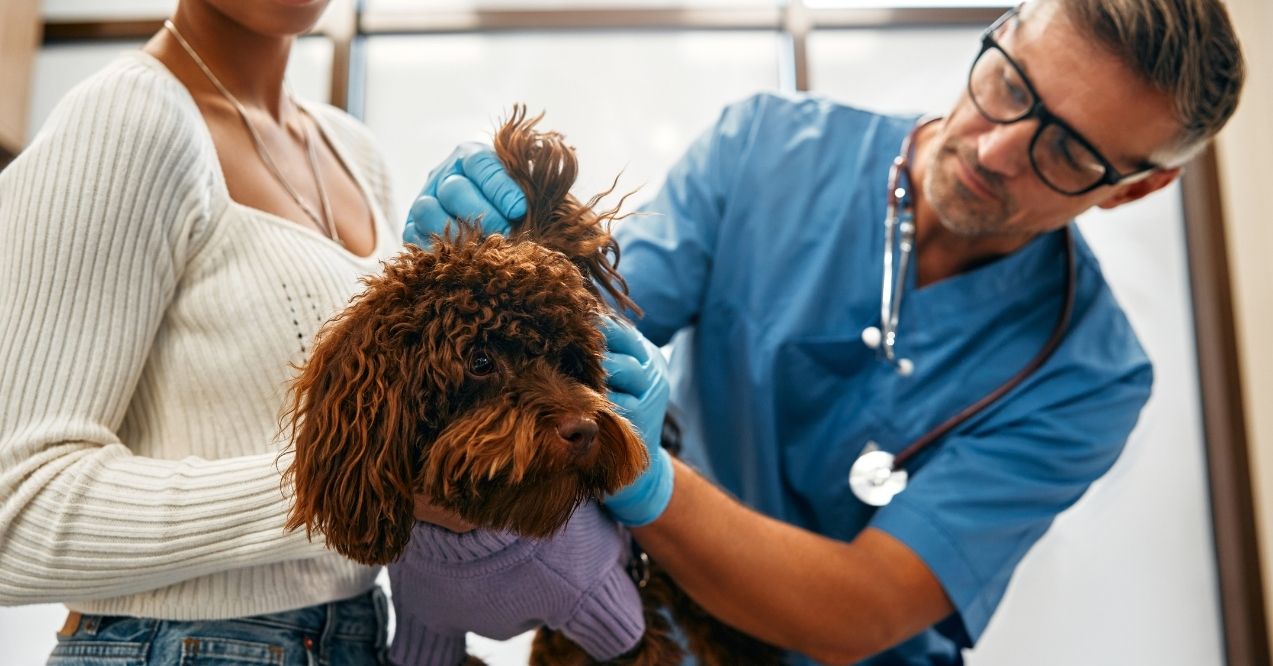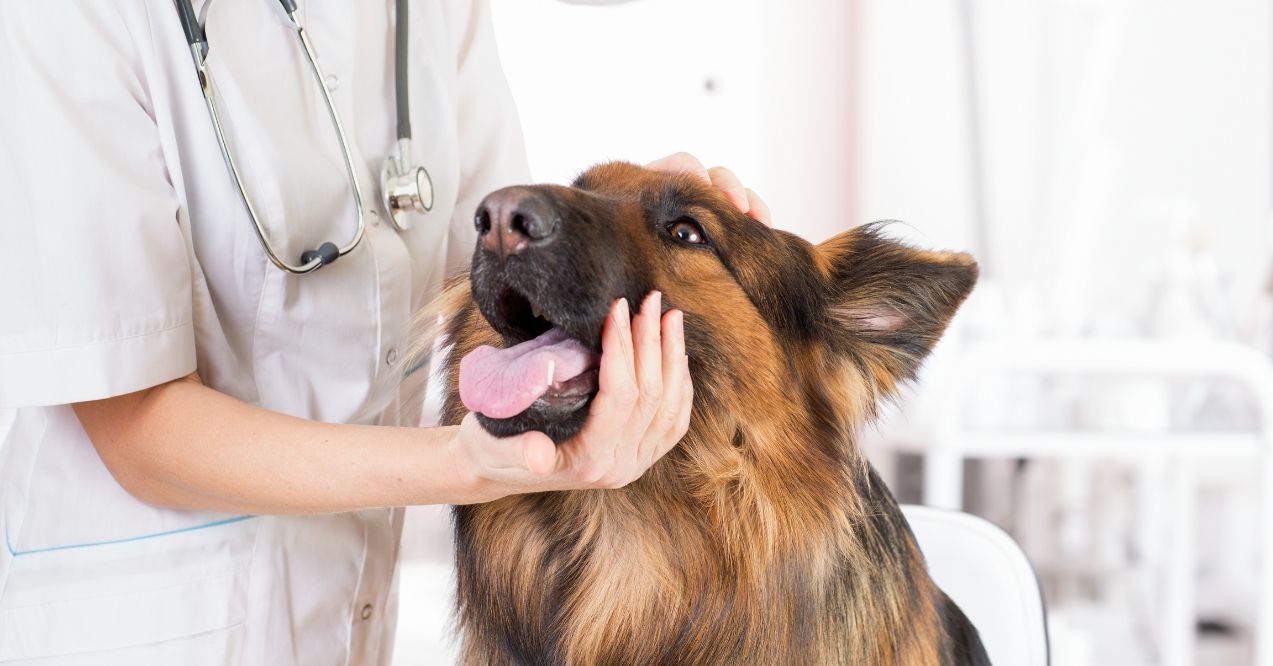7 Common Poodle Health Issues
For current and future Poodle parents, understanding your companion’s unique needs is essential for providing excellent care. Poodles are renowned for their remarkable intelligence, elegant appearance, and loyal nature that makes them wonderful family members. Like all dog breeds, Poodles have specific health considerations that responsible pet parents should understand.
Poodle health issues can vary depending on genetics, lifestyle, and age, but being informed helps you support your furry friend’s well-being proactively. This guide walks you through common health concerns affecting Poodles, organized by breed traits, lifestyle factors, and life stages.
Poodle Health Traits & Risks
Poodles are generally considered a robust breed with excellent longevity, but their distinctive characteristics can create specific wellness considerations.
Size & Joint Sensitivity
The three Poodle varieties – Toy, Miniature, and Standard – each face unique physical challenges related to their size. Toy and miniature poodle health issues often involve more delicate bone structure, making their limbs more susceptible to stress during jumping or rough play. Their lightweight frames require careful handling and appropriate exercise surfaces.
Standard Poodles, while sturdier, carry more weight on their joints, particularly affecting hips and elbows during their senior years. This increased load means they benefit from activities that support joint flexibility without excessive impact.
Coat Texture & Skin Concerns
A Poodle’s dense, curly coat acts like a natural trap for moisture, dirt, and allergens. Without regular grooming, this can create an environment where skin becomes irritated or uncomfortable. Signs of unhealthy dog coat include excessive scratching, dull texture, or patches where fur appears matted or thinning.
Maintaining proper coat care goes beyond aesthetics – it directly supports skin wellness. Regular brushing promotes air circulation to the skin while removing trapped debris that could cause discomfort.
Emotional Sensitivity & Behavioral Signs
Poodles rank among the most emotionally perceptive breeds, often mirroring their family’s moods and energy levels. This sensitivity means that health problems of poodles can manifest through behavioral changes before physical symptoms appear. A stressed Poodle might show decreased appetite, altered sleep patterns, or changes in their usual grooming habits.
Their high intelligence requires mental stimulation to maintain emotional balance. Boredom or anxiety can trigger excessive licking, restlessness, or withdrawal from normal activities.
7 Common Health Problems in Poodles

Despite their overall vitality, some common Poodle health problems tend to show up more frequently due to their genetics, size, and sensitivity. Recognizing early signs through behavior or physical cues can help support long-term wellness and comfort.
1. Joint Discomfort & Stiffness
One of the most frequent standard Poodle health issues involves mobility. You might notice your dog hesitating to jump onto furniture, taking longer to get up from rest, or moving more slowly on walks. These signs may indicate joint discomfort.
Supportive measures like orthopedic bedding, gentle walks instead of high-impact play, and mobility-focused nutrients can help maintain flexibility and ease of movement.
2. Eye Health Changes
As Poodles age, subtle shifts in eye function can become more noticeable. Signs might include bumping into furniture, developing a cloudy or red appearance in the eyes, or squinting in bright light.
Keeping an eye on these changes – especially in senior Poodles – can help you adjust their environment to suit their evolving needs.
3. Skin Sensitivities & Dry Patches
Many health issues in Poodles start with the skin. Scratching, paw licking, or a dull, brittle coat may point to skin imbalances caused by dry weather, grooming products, or dietary gaps.
If you’re unsure what to do about dog skin allergies, begin by simplifying their bath products, switching to a skin-friendly diet, and adding nutrients that support the skin barrier. Regular grooming also helps reduce trapped debris and dryness.
4. Hormonal Imbalances
Low energy, sudden mood shifts, or unexplained weight gain may hint at hormonal irregularities in some Poodles. These signs can sometimes reflect changes in thyroid or adrenal activity. Because these shifts are easy to overlook or confuse with aging, it’s worth paying attention to new or ongoing patterns in your dog’s daily behavior and physical condition.
5. Digestive Discomfort & Sensitivities
Especially in Miniature and Standard Poodles, digestive changes can be a source of discomfort. If your dog shows signs like loose stool, bloating, or occasional vomiting – especially after switching foods or during periods of stress – these may indicate sensitivities.
Gentle, nutrient-dense meals and stable feeding routines can help promote digestive balance and minimize flare-ups linked to poodle health conditions.
6. Seizure Activity or Confusion Spells
Some Poodles may be genetically prone to neurological quirks. Seizure-like activity can range from twitching and staring spells to brief moments of disorientation. While unsettling to witness, these events can sometimes be related to inherited traits. Keeping a log of when and how often these behaviors occur can help determine the right course of supportive care.
7. Behavioral Shifts That Signal Wellness Issues
Sudden clinginess, new hiding habits, or ongoing restlessness may be signs your dog is uncomfortable or unwell. These subtle behavioral shifts are often one of the first clues to health issues with Poodles. Keeping a simple journal of your dog’s mood, habits, and routines can reveal helpful patterns that point to larger changes in health.
Everyday Wellness Support for Poodles

Keeping your Poodle thriving goes beyond addressing individual concerns – it’s about building habits that support long-term wellness. Daily routines focused on movement, grooming, and nutrition help maintain balance across mind and body.
Low-Impact Daily Movement
Poodles are naturally active and intelligent, so movement is key to their comfort. Gentle, consistent activity supports mobility, digestion, and mood. Try incorporating:
- Daily walks at a comfortable pace
- Soft-surface games like fetch on grass or rugs
- Short training sessions that combine mental and physical stimulation
Skin & Coat Health
That iconic Poodle coat needs regular care to stay clean, soft, and comfortable. Healthy skin starts with routine grooming and internal support:
- Brush weekly to prevent matting and remove trapped debris
- Use moisturizing, pet-safe shampoos for occasional baths
- Include skin-supportive nutrients like biotin and Omega-3s in their diet
A shiny, smooth coat often reflects internal wellness – making grooming a vital part of your Poodle’s care.
Balanced Diet & Supplement Support
What your Poodle eats plays a direct role in how they look, feel, and behave. A targeted diet can support both digestion and emotional well-being:
- Choose food with high-quality proteins and healthy fats
- Add fiber to promote regular digestion
- Support gut-skin-behavior balance with targeted supplements
Conclusion
While Poodles are known for their intelligence and charm, they can still face a few common wellness concerns. By understanding key Poodle health issues – from joint sensitivity to skin and behavioral changes – you can better support their needs through all life stages.
With daily movement, coat care, and a balanced diet, you’ll be helping your Poodle stay active, comfortable, and happy. Stay observant, follow a consistent routine, and your pup will thrive with the love and care they deserve.
Standard Poodles may experience joint stiffness, eye changes, and occasional digestive discomfort. Their size can place more pressure on hips and limbs, making mobility support and consistent wellness care important throughout their life stages.
Miniature Poodles may have more delicate joints and higher emotional sensitivity, but overall health risks are similar to Standards. Their smaller size requires tailored care, especially for bones, digestion, and maintaining calm, balanced behavior in stimulating environments.
Watch for signs like loose stool, occasional vomiting, gas, or lack of appetite after meals. These may suggest a sensitive stomach, especially when triggered by food changes, stress, or rich treats. Keep meals simple and consistent.
Yes, Poodles can experience thyroid-related imbalances. Signs might include low energy, weight changes, or shifts in mood and coat condition. If you notice gradual changes in activity or appetite, it may be worth supporting hormone-related wellness functions naturally.
Advertisement. This site offers health, wellness, fitness and nutritional information and is designed for educational purposes only. You should not rely on this information as a substitute for, nor does it replace, professional medical advice, diagnosis, or treatment. If you have any concerns or questions about your health, you should always consult with a physician or other health-care professional. Do not disregard, avoid or delay obtaining medical or health related advice from your health-care professional because of something you may have read on this site. The use of any information provided on this site is solely at your own risk.




















